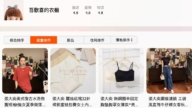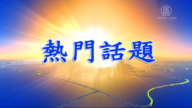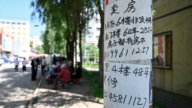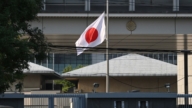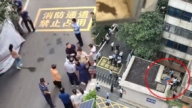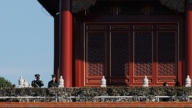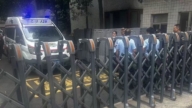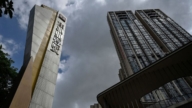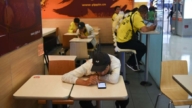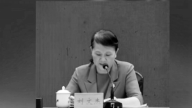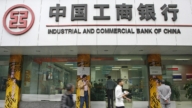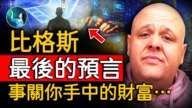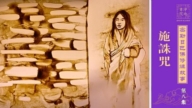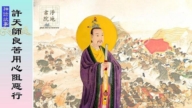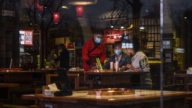【新唐人2011年7月5日讯】在全球金融危机的冲击下,中共政府越来越多的介入经济,导致经济陷入“国(企)进 民(营)退”的格局。经济专家们认为,这种政府介入越来越多的模式导致的繁荣,无法持久。同时,中国目前的情况:扩大借贷、不受控制的通货膨胀,以及触动人们神经的官员腐败,跟“六四”当年十分相似。
在全球金融危机的冲击下,中共一直高喊着经济增长“保八”,加强了政府介入,在产业发展、人民币汇率等方面都强加控管。似乎显示出由政府领导,使用“政策工具”(policy tools)的中国模式,比市场经济模式优秀。
但是,经济学家芧于轼认为,目前中国经济因为陷入“国(企)进 民(营)退”的格局,政府配置越来越多,导致市场在缩小。
芧于轼:﹝录音﹞ “当前来讲,我觉得中国经济比较成问题的,就是政府控制的资源越来越多,违背了‘市场配置资源’的这样一个原则,中国经济的效率在降低,垄断在加强,经济结构的扭曲越来越难处理。”
为应对经济危机,中共当局出台了“十大产业振兴规划”和“4万亿经济刺激方案”。在这些计划中,许多政策明显的向“国有企业”倾斜。
经济时政评论家,兼美国亚太人权基金会执行长草庵居士也表示,‘国进民退’反映了中国政治体制和经济体制的扭曲。
草庵居士:“因为经济自由发展呢,是希望民间的经济发展,但是因为中国的独裁政府,政府在制定政策上,包括在经济利益上都有个倾斜,它倾斜于这个独裁的政权,独裁的统治。所以这必然造成一个,国有的经济在政府的掌握之下,得到政府的袒护和被扶持,民间的经济就会备受压制。”
草庵居士还认为,中共名义上实行自由经济,但是政治上实行一党专政,两者间的扭曲,未来将会产生问题。
草庵居士:“在这种制度下,必然会导致通货膨胀。这种情况就是和六四时期有一个相似。六四的时候,民怨主要是集中在一个反腐败上面,但现在已经腐败在中国成为一个常态了。在这种情况下民众内心的反抗,事实上比六四的时候更加激烈。”
清华大学经济管理学院教授程致宇(Patrick Chovanec)也指出,目前中国的情况跟六四之前有些相似,他向《美国之音》说:“在1980年代中,先有一波借贷风潮,接着而来的就是通货膨胀的高峰。”他还表示:“当年跟我们现在所见的是一样的,就是扩大借贷,不受控制的通货膨胀,以及触动人们神经的官员腐败。”
程致宇教授曾经担任美国众议院议长贝纳(John Boehner) 的幕僚。他还表示,现在中共政府担忧,如果经济发展慢下来,民怨将会爆发,所以集全国之力追求GDP成长,并且政府过深的介入经济,形成“国进民退”。程致宇教授认为:“中国就像在一辆高速前进的火车上头,骑虎难下。”
程致宇教授分析,中共政府错过了让经济“软着陆”的最佳时机,目前中共政府看起来仍将持续相同的刺激经济政策,而习近平在接班的第一年恐怕不敢让经济成长放缓,所以将造成更多的坏帐、更多通货膨胀。到时候经济上、政治上都无法得到满足,中国人民的怨气将更加高涨。
新唐人记者周玉林、尚燕、周昕屹采访报导。
Tiananmen Movement May Recur
Due to the global financial crisis’s impact,
the Chinese government is increasingly intervening
in the economy, resulting in the situation of
“the advancing state and the retreating private sector”.
Experts think that this would lead a state of prosperity
that cannot be sustained in the long run.
Currently, China is facing lending expansion,
uncontrollable inflation and disturbing corruption,
very similar to the days before Tiananmen Movement.
The Chinese government has been stressing to
“keep the economic growth rate at 8%”.
It strengthened intervention in industrial development
and increased control over RMB exchange rate.
It appears that the government-led Chinese model,
using “policy tools”, is better than the market economy.
Economist Mao Yushi believes that China now faces
“an advancing state and a retreating private sector”.
The government has increasing resources,
which resulted in a retreating private sector.
Mao Yushi: I think Chinese economy is problematic.
Authorities control an increasing amount of resources,
contrary to “resource allocation by market”.
China’s economic efficiency is in decline
with an increasingly distorted economic structure.
In response to the economic crisis,
the authorities issued “Ten Industry Promotion Plans"
and “RMB 4 trillion economic stimulus package".
Many of the policies favor state-owned enterprises.
Economic and current affairs critic Caoan Jushi said,
this situation reflects the distortions of
China’s political system and economic system.
Caoan Jushi: Free economic development favors
the economic development of the private sector.
However, due to China’s authoritarian government,
its policies are biased for the dictatorial regime.
Inevitably, this leads to the state-owned companies
enjoying the governmental support,
with the private sector being highly suppressed.
He believes that China’s free economy is nominal,
as the nation is under one-party rule.
This situation will create future problems.
Caoan Jushi: This system inevitably leads to inflation.
This is similar to the days before June 4th Movement.
At that time, the people’s rancor was about corruption.
However, corruption is now a norm in China. Therefore,
the resistance in people’s minds is more fierce.
Tsinghua University Professor Patrick Chovanec said
the current situation is similar to the situation in 1989.
He told Voice of America, “In the 1980s,
there was a wave of lending,
then came a wave of inflation.
The current situation is similar.”
Professor Chovanec was a staff member of
former U.S. House Speaker John Boehner.
He said that the Chinese government is worried that
if the economic growth slows down,
people’s rancor will explode. Therefore,
it uses the entire nation’s power to pursue GDP growth.
He said, “China is like riding on a high-speed train,
and it is very difficult to get down”.
Chovanec analyzed that the government missed
the best opportunity for an economic “soft landing”.
The government is likely to continue
the current policy of economic stimulation.
After taking off the presidency, Xi Jinpin will not allow
the economic growth to slow down.
The Chinese people’s grievances will be increased.
NTD reporters Zhou Yulin ,Shang Yan and Zhou Xinyi


